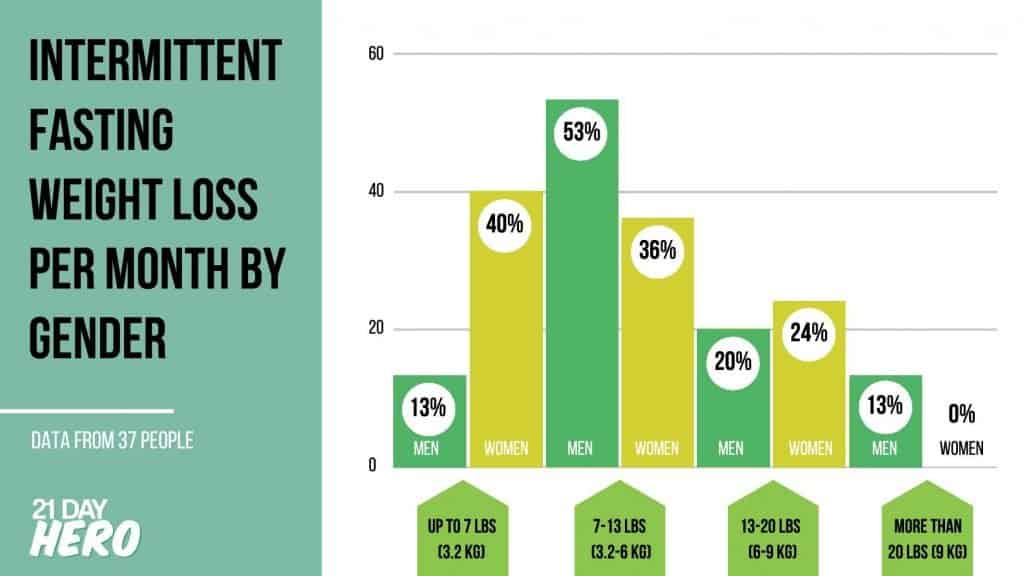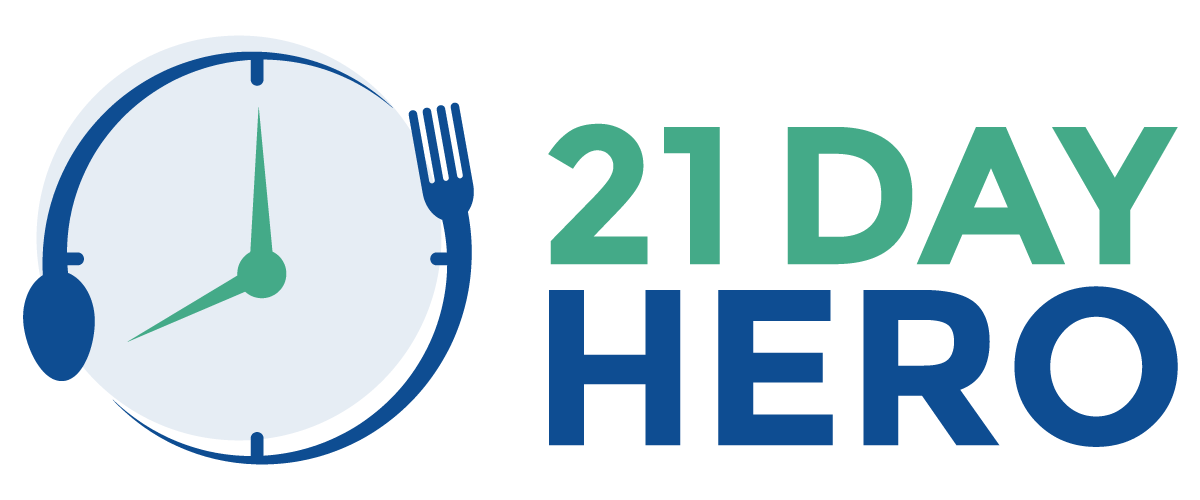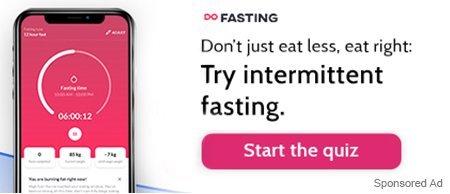Benefits of fasting | Fasting & hormones | fasting during pregnancy | women doing fasting share their experience
Is intermittent fasting good for women? If you came to this article, you’re probably one of the thousands of women who have heard about the benefits of Intermittent Fasting but would like to know first: is Intermittent Fasting safe for Women?
The short answer: yes, but it depends.
It is certainly safe in some cases, but there are times where women should not fast or do it very carefully.
With so many benefits like weight loss, the boost in energy levels, improved overall health and well-being, trying out Intermittent Fasting for women sounds like a no-brainer, right?
But, it is always important to do your research before diving into a new diet or lifestyle regime. In this article, we’ll guide you through everything you need to know when it comes to Intermittent Fasting for women.
While we can all agree that women are strong, powerful…and can be just as capable of fighting hunger as men, there are a few differences in our bodies that are important to take into account.
We have looked at the available research and tried to find answers to the below questions so that you can make an informed decision regarding intermittent fasting.
Feel free to jump straight into the following sections if you will:
- What are the benefits of Intermittent Fasting for Women
- How Intermittent Fasting affects female hormones
- Can you do Intermittent Fasting while pregnant
- What other women say about their Intermittent Fasting experience
- What to pay attention to when starting Intermittent Fasting
Health benefits of intermittent fasting
What are the benefits for women doing intermittent fasting? Is intermittent fasting good for women?
First, let’s have a look at Intermittent Fasting benefits for women. Generally, there is not much difference between the two genders: men and women.
Here are the 3 most common results you can expect after starting intermittent fasting for any gender.
Weight loss
Losing unwanted pounds is the main motivation for most people to start Intermittent Fasting. Studies show that intermittent fasting indeed can be just as effective a weight loss strategy as traditional calorie-restricted diets.
The amount of weight you will lose, however, is highly impacted by the number of calories you consume during the eating window and how long you stick to the lifestyle.
For our article on What Intermittent Results Can You Expect we surveyed over 40 people and could conclude that women lose weight as effectively as men.
Yet, men reach slightly higher results in a shorter time: while the majority of our surveyed men (53%) lost 7-13 pounds (3.2-6 kg) in the first month, the majority of women (40%) lost up to 7pound (3kg). See more details in our article here. Fasting weight loss info graph below. Intermittent fasting chart for weight loss.

Improved heart health
Heart diseases are the leading cause of death worldwide.
Good news for Intermittent Fasters – risk factors of various heart conditions can be lowered with the help of Intermittent Fasting. For example, studies show that Intermittent Fasting can lower blood pressure and cholesterol levels.
Also, let’s not forget about the aforementioned weight loss. Obesity is a strong risk factor for the development of heart diseases and intermittent fasting is a great way to shred some of that unwanted fat.
Psychological benefits
Intermittent fasting is a popular tool to increase energy levels and improve focus.
Check out our article How to do Intermittent Fasting According to 40 Famous People and you will be surprised by some of the benefits celebrities claim to experience. For example, “Coldplay” soloist Chris Martin swears Intermittent Fasting makes him sing better.
Intermittent fasting can do miracles to our mental health, too.
There’s a study finding that eight weeks of intermittent fasting improved body image in obese adults, decreased depression and even binge eating behavior.
Intermittent fasting and hormones
How Intermittent Fasting affect female hormones?
Yet, there are certain things when it comes to Intermittent Fasting for women worth highlighting.
Our reproductive system is very different from that of men and hence women should pay closer attention to their hormones when doing Intermittent Fasting.
The female brain and ovaries communicate through the so-called hypothalamic-pituitary-gonadal (HPG) axis. While it might sound very complicated, in short, it regulates the brain signals to the ovaries to release the necessary amount of estrogen and progesterone hormones.
This happens on a very precise and regular cycle in women, and there can be many environmental factors that can affect this process. While for some women, their hormones and cycle are generally stable, many women are more sensitive to changes in their diet, lifestyle, stress or even the weather.
A sudden change to your eating schedule, in particular, fasting for prolonged periods, can put many women in stress and hence cause them to miss their period, throw off their cycle or even lead to infertility issues. Still, more studies need to be done to confirm this.
Knowing this, it is advised to ease into Intermittent Fasting, if you are a woman, to reduce stress on your body and slowly get used to the lifestyle change.
You might want to start with shorter fasting periods (e.g., 12/12) or have fewer fasting days a week instead of starting with 7 days of straight Intermittent Fasting.
Researcher Megan J. Ramos on Intermittent fasting and menstrual cycle:
“Women tend to struggle during certain parts of their cycle when it comes to Intermittent Fasting. Fasting tends to be the easiest right before their menstrual cycle starts. It tends to be the most difficult during the menstrual cycle. Then the next 7 days normally are easy. So we go one week it’s easy, one week it’s challenging.”
Click here to listen to the full interview with Megan J. Ramos on how fasting can help you get pregnant and fight diabetes.
Intermittent fasting during pregnancy
Can you do intermittent fasting when pregnant?
While there are not many studies on the effects of Intermittent Fasting on pregnancy, it is generally not recommended to practice Intermittent Fasting for women during pregnancy or breastfeeding.
Most existing studies look at pregnant women doing fasting during the Muslim holiday of Ramadan. It lasts about 30 days, during which people fast from dawn to sunset. While breastfeeding and pregnant women are allowed to quit fasting during Ramadan, some still decide to carry on with it.
The results of these studies showed that fasting didn’t impact the birth weight of the baby. However, researchers emphasize that more studies are needed to understand the possible long-term effects completely.
Therefore, if you decide to start or carry on with intermittent fasting during pregnancy, you should always consult with your doctor.
Here are two main reasons why you should be cautious with Intermittent Fasting during pregnancy.
- Women who experience common pregnancy symptoms like nausea, fatigue, trouble sleeping are recommended to eat smaller portions throughout the day to stabilize their blood sugar levels and settle an upset stomach. This could be difficult if you do time-restricted eating.
- While there is no need to “eat for two” during pregnancy, your body is using more energy and nutrients and is in need of increased caloric intake. The less time you allow yourself to eat, the harder it would be to meet your macronutrient needs. It gets even more complex during late pregnancy when a lack of space in the stomach can make it hard to eat large portions.
The same applies to any breastfeeding woman, who normally needs up to 500 extra calories a day, and a continuous source of fluids and calories to maintain milk supply and meet her own body’s needs.
For more on this topic, check out:
- Can You Do Intermittent Fasting While Breastfeeding
- Intermittent Fasting While Pregnant: Why It’s Not Recommended
- Intermittent Fasting and Candida & Yeast Infection
What other women say about their Intermittent Fasting experience – see the achievements of these fasting women
Before we summarize the findings, let’s have a look at what other real-life women have to say about their Intermittent Fasting experience.
Below is just a small snapshot of all the women from our Intermittent Fasting community that are swearing Intermittent Fasting has changed their lives. To read more about their stories, head to What Intermittent Fasting Results Can You Expect.

GIGI GHOBRIAL
WEIGHT LOST: 52 lbs (23.5 kg)
TIME: 7 months

GRACE RICHARDS
WEIGHT LOST: 25 lbs (11.3 kg)
TIME: 4 months

DIONNA LOFTON
WEIGHT LOST: 86 lbs (39 kg)
TIME: 6 months
intermittent fasting for women: conclusion
Should women do intermittent fasting?
Despite being slightly more sensitive to Intermittent Fasting than men, women can still practice time-restricted eating and experience all the intermittent fasting benefits, including weight loss.
However, there are some important factors to take into account before you embark on the intermittent fasting journey.
Caloric intake
With fewer hours to consume food, it is likely that you will be consuming fewer calories and as learned earlier, female bodies are more sensitive to caloric restriction.
Therefore it is important to take a more relaxed approach to intermittent fasting, start slow and listen to your body.
If you experience any of the severe side effects like a missed period or constant fatigue, take a break and consult with your doctor. A professional will be able to advise the best approach for your unique situation or recommend alternative means to reach your weight loss or diet goals.
Diet quality
Intermittent fasting should by no means be a way out of a bad diet.
Nutritional deficiencies when not getting enough macronutrients (carbs, protein and fats) or micronutrients (vitamins and minerals) are more common among women, particularly young women during childbearing age, and is linked with poor diet choices. Having a nutritious, balanced diet is the key when doing intermittent fasting to avoid most side effects of fasting.
If you are unsure what to eat to have balanced nutrition AND STILL reach your weight loss goals, try out our 21-day Intermittent Fasting meal plan. Prepared in collaboration with Registered Dietitians, it ensures you meet your macro and calorie needs every day for your unique age, physical activity level and body goal.
Do a quick quiz to find out which meal plan is the best for you and get it delivered immediately with only a few clicks.
Get your Intermittent Fasting meal plan here
Weight and Body Mass Index (BMI)
Studies show that it is important to make a distinction between different body weights when looking at side effects and benefits of Intermittent Fasting.
Overweight and obese women show significant improvements with Intermittent Fasting. In contrast, women with normal weight did not experience the same across-the-board metabolic benefits.
Underweight women should be particularly careful when doing intermittent fasting. Even if you don’t need to lose weight, you can still enjoy other benefits of Fasting such as cell regeneration, improved energy levels and reduced blood sugar levels. But, it’s crucial to make sure you have a nutritious diet and sufficient caloric intake to avoid intermittent fasting side effects.
For a generally healthy person, it is okay to start beginner-friendly intermittent fasting methods like intermittent fasting 16/8 on their own.
However, you should definitely consult with your doctor if you:
- Are underweight or struggling with weight gain. Your eating window will be a lot shorter, which means it will be harder to consume the same amount or more calories than normally.
- Are pregnant or breastfeeding. You should be more cautious with your diet and lifestyle during this time.
- Are under 18 years old. Effects of intermittent fasting during periods of rapid growth, such as for children and teenagers, are not studied enough, therefore, you should be cautious with it.
- Have suffered from an eating disorder. Restricting times of eating will increase the risk of falling back into old habits during an eating disorder.
- Have type 1 diabetes. Intermittent fasting increases sensitivity to insulin, therefore it may affect how much insulin medication you need.
Remember, as a woman, it’s crucial to ease into Intermittent Fasting slowly.
Sudden diet and lifestyle changes might come with many side effects like loss of energy, headache, trouble sleeping, rapid mood swings and others. And I bet, none of us want that?!
If you are planning on starting the most popular Intermittent Fasting method 16/8 let your body adapt to the new eating pattern by starting with a 12/12 schedule. It would mean 12 hours of fasting and a 12-hour eating window. Slowly increase your fasting window as the days go by until you have reached your desired Intermittent Fasting schedule.
To get more guidance on how to successfully start Intermittent Fasting, join our 21-day Intermittent Fasting challenge that will guide you through the first 3 weeks of Intermittent Fasting with no effort.
And if you join now, you get our popular 3-week Intermittent Fasting meal plan, worth over $50 USD, FREE OF CHARGE!













